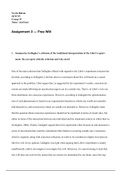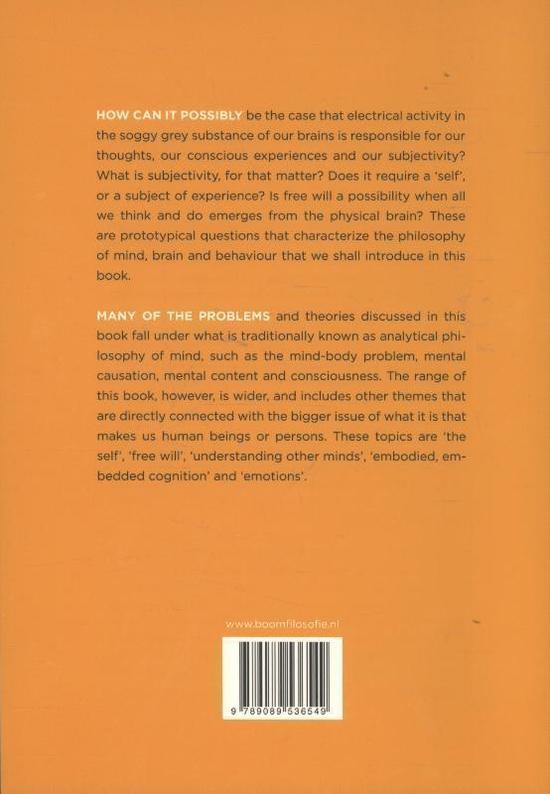Yvette Balata
2676719
Group 19
Tutor: Atul Suri
Assignment 3 — Free Will
1. Summarize Gallagher’s criticism of the traditional interpretation of the Libet’s experi-
ment. Do you agree with his criticism and why (not)?
One of the main criticism that Gallagher offered with regards to the Libet’s experiment concerns the
fact that, according to Gallagher, Libet has drawn a conclusion about free will based on a causal
approach to the problem. Libet argues that, as suggested by his experiment’s results, conscious de-
cisions are made following an unconscious urge to act in a certain way. That is, in Libet’s view our
brain determines our conscious experiences. However, according to Gallagher the operationaliza-
tion of such phenomenon is based on an experimental situation in which one would not normally
find themselves, and on processes which are usually not attended to. Moreover, Gallagher states
that the question about conscious experiences should not be explained in terms of causal roles, but
rather in terms of the interaction between one individual and the situational context in which their in
(Gallagher, 2006). Finally, Gallagher argued that in his experiment Libet focused on and measured a
series of movements that could be considered reflex behavior occurring outside one’s awareness,
which is required, along with conscious reflection, in order to be considered a higher level process
like free will. In my opinion, Gallagher was right when arguing that Libet’s experiment is simply
insufficiently valid to investigate to investigate free will. Moreover, it is unconvincing to state that
free will does not exist for the reason that our actions are determined by our brain, since this sug-
, gests a dualistic stance on the brain-body issue, implying that the physical brain is separate from the
mind. However, the experiment does not offer sufficient evidence to establish this fundamental di-
vision.
2. Explain how Gallagher proposes to understand the relation between free will and bodily
movement
Gallagher introduces the issue about bodily movements and their relation with free will when ad-
dressing the current question that is posed with regard to free will. That is, free will, and conscious
intentions, are commonly associated with the actions that they cause (Gallagher, 2006). However,
Gallagher wants to emphasize the fact that most motor control processes actually occur unconsciou-
sly and automatically so that our conscious awareness is directed on the surrounding environment
rather than the body itself. For this reasons, he argues that investigating motor control processes is
not adequate to tackle the issue of free will for the reason that, among other factors, free will is a
long-term phenomenon which cannot fit the time frame necessary to perform a motor action, as
well as the fact that it requires consciousness which, as previously stated by Gallagher, most motor
control processes do not involve (Gallagher, 2006). Furthermore, Gallagher proceeds to make a di-
stinction between reflex movement and intentional actions with the latter being the representation
and consequence of a decision that was consciously and freely made. According to Gallagher, those
intentional and conscious actions are the result of the situational context, including the target of the-
se actions, on which awareness is focused. Moreover, Gallagher adds that the unconscious motor
control is what allows one to perform the actions necessary to achieve a goal, and that their automa-
tic nature enables the individual to attend to the conscious and free decision.






